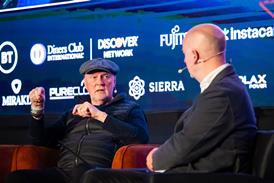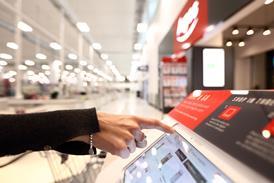Analysis: How Morrisons blazed a grocery trail through the Covid crisis

Morrisons’ profits might have fallen over the past year, but the grocer’s chief executive David Potts painted a picture of a business that has used a period of unparallelled upheaval to readjust its priorities for the future.
The supermarket giant’s profit before tax and exceptional items was sliced in half to £201m during the 52 weeks to January 31, while it also tumbled out of the FTSE 100. But Potts’ response to both setbacks was unexpected.
Already have an account? Sign in here



















